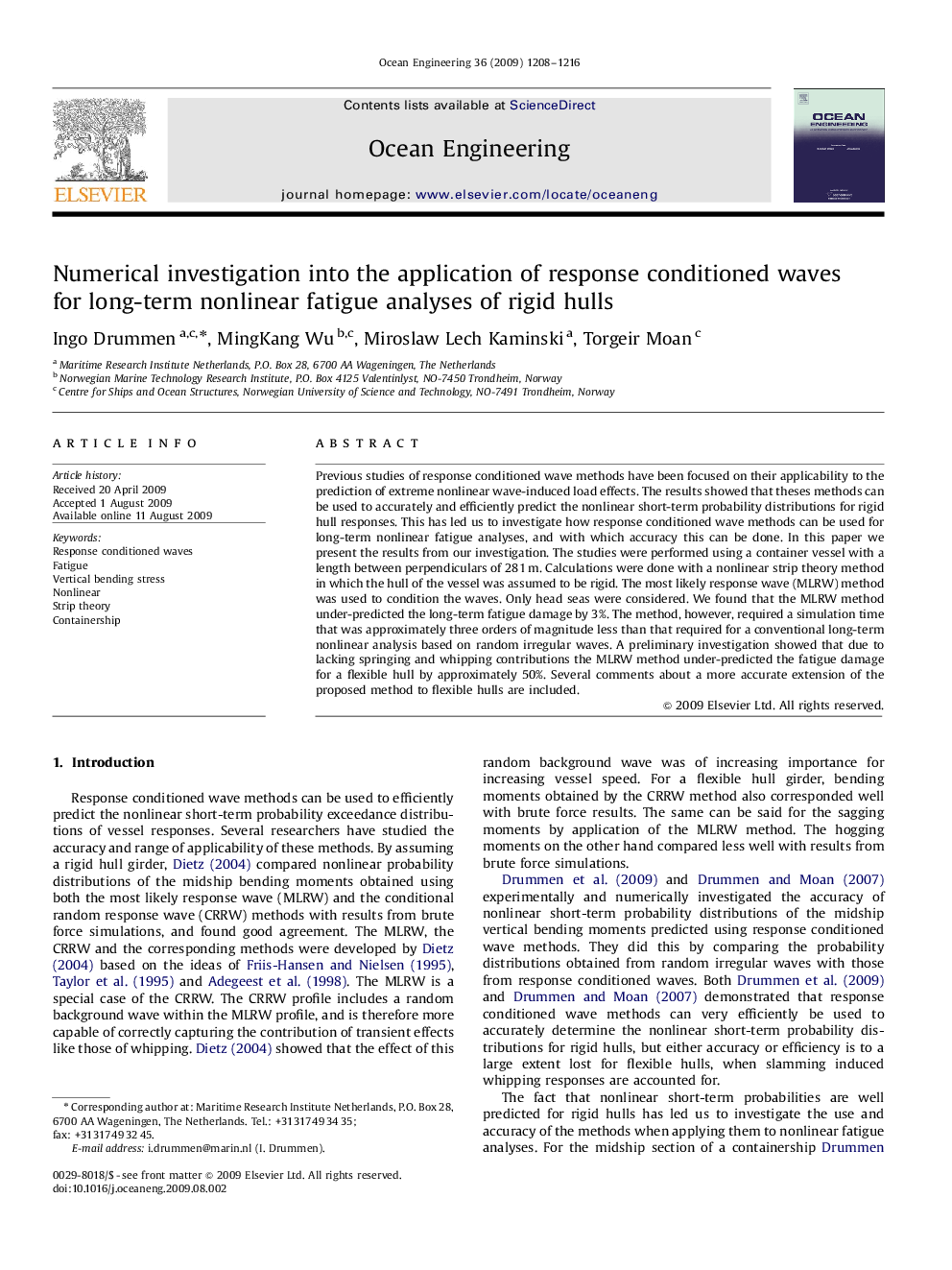| Article ID | Journal | Published Year | Pages | File Type |
|---|---|---|---|---|
| 1726560 | Ocean Engineering | 2009 | 9 Pages |
Previous studies of response conditioned wave methods have been focused on their applicability to the prediction of extreme nonlinear wave-induced load effects. The results showed that theses methods can be used to accurately and efficiently predict the nonlinear short-term probability distributions for rigid hull responses. This has led us to investigate how response conditioned wave methods can be used for long-term nonlinear fatigue analyses, and with which accuracy this can be done. In this paper we present the results from our investigation. The studies were performed using a container vessel with a length between perpendiculars of 281 m. Calculations were done with a nonlinear strip theory method in which the hull of the vessel was assumed to be rigid. The most likely response wave (MLRW) method was used to condition the waves. Only head seas were considered. We found that the MLRW method under-predicted the long-term fatigue damage by 3%. The method, however, required a simulation time that was approximately three orders of magnitude less than that required for a conventional long-term nonlinear analysis based on random irregular waves. A preliminary investigation showed that due to lacking springing and whipping contributions the MLRW method under-predicted the fatigue damage for a flexible hull by approximately 50%. Several comments about a more accurate extension of the proposed method to flexible hulls are included.
